SEASONAL PRATTLE
After a light break and a change of seasons, weekly check-ins are back just in time to take a look at the storytelling and structural prowess of Summer’s initial anime. With that said, it’s hard to say that Vinland Saga’s first three episodes are anything short of impressive – mingling an elegant production effort with a brand of storytelling that practices the kind of intimacy and consideration that’s worthy of praise. This work’s writing has been consistently fit thus far, texturing Thorfinn and Thors with little wasted energy, staying agile enough where plot beats hardly drag and maintaining a strong voice and comfortability with the base material. Piling on, this is all matched with a crisp exterior and thoughtful batch of direction that does its fair share of heavy lifting, keeping events more immediately rewarding while the script soaks in. Vinland Saga is easily the most complete and competent product of Summer’s first week and it’s just getting started.
Dr. Stone (1)
Next up is a rather strong showing from Dr. Stone on both sides of the coin – delivering a clean cut presentation down to the tacks and pushing out a level of smooth scripting that heartily comprehends its pace and hooks. Our leads are already displaying a bunch of promise both as a unit and individually with Senku appearing to be especially solid. It’s a plus the writing here can reliably lean on him for comedy and narrative progression in the same breath, and his overall attitude lends a lot of flavor to scenes where a lesser lead would fall flat. Very nicely done.
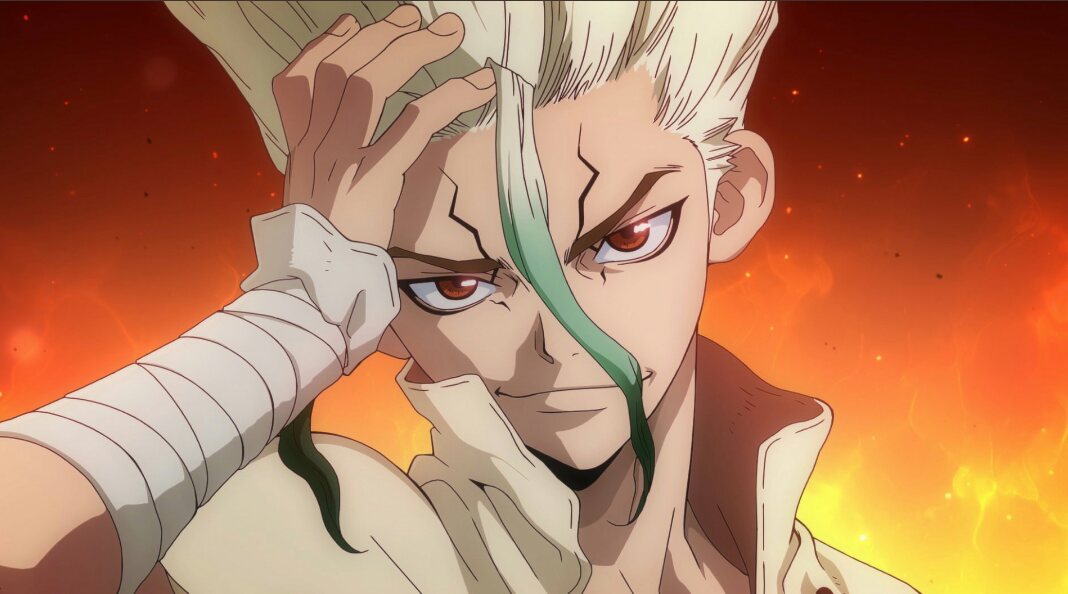
Fire Force (1)
Fire Force lives up to its pre-air billing, a visual and technical beauty that oozes a ton of confidence around its more bombastic scenes. As a pure aesthetic piece, it’s deeply satisfying. Viewers are immediately greeted with a set of material and reel of vision that booms like a rocket, bloated on energetic shot framing of Shinra and friends first job together, and ultimately nailing its climax out of the park. Thankfully, this type of performance wouldn’t be a one-off instance in the slightest as Fire Force is crisp even through the ED. Be that as it may, this first episode does finds itself in trouble when it comes to offering narrative value. Our opening script hardly has any meat on it, giving little to limited reason to care about any of the cast members introduced or even the underlying story itself – an aspect that this series has plenty of time to work on, so admittedly, it isn’t too concerning right now. With that said, it still does stunt its worth a bit in terms of being invested, but at the end of the day, collectively, episode one was rather applaudable nonetheless. Good job
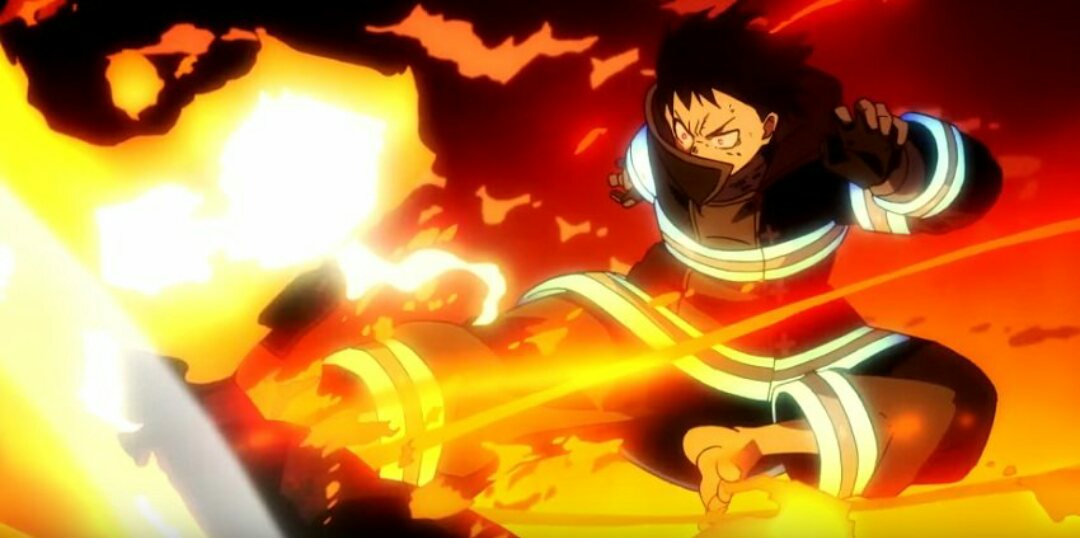
Kanata no Astra (1)
Beyond some obviously tropey characters, Kanata no Astra’s start was relatively solid all in all. Patches of its double-length premiere can feel sluggish, notably its intro doesn’t have the most eloquent or sleek writing, but its actual premise and key beats have enough magnetism and energy to keep viewers dialed in once it gets moving. Masaomi Andō’s directorial quirks make the most out of some rougher CG bits, shining in chunks both in space and on the ship, and by curtain call there’s enough of a hook to easily warrant looking at another episode. Interested to see if it can tighten up some of its weak points moving forward and take an enjoyable start to the next level.

Dumbbell Nan Kilo Moteru? (1)
Pretty respectable showing from Dumbbell Nan Kilo Moteru?, presenting more personality and responsive character acting than expected. The show’s fitness gimmick naturally synergizes with the ecchi spaces it wants to dwell in, and the fundamental level of writing here is firm enough to not be a liability. Topping that off, the core cast seems capable of carrying this show on a dime when needed: Hibiki is already showing flashes of being a fun lead and Akemi bounces off of her well when sharing the screen. I can see possibly a decent chunk of upside here if Doga Kobo can keep it on the rails.
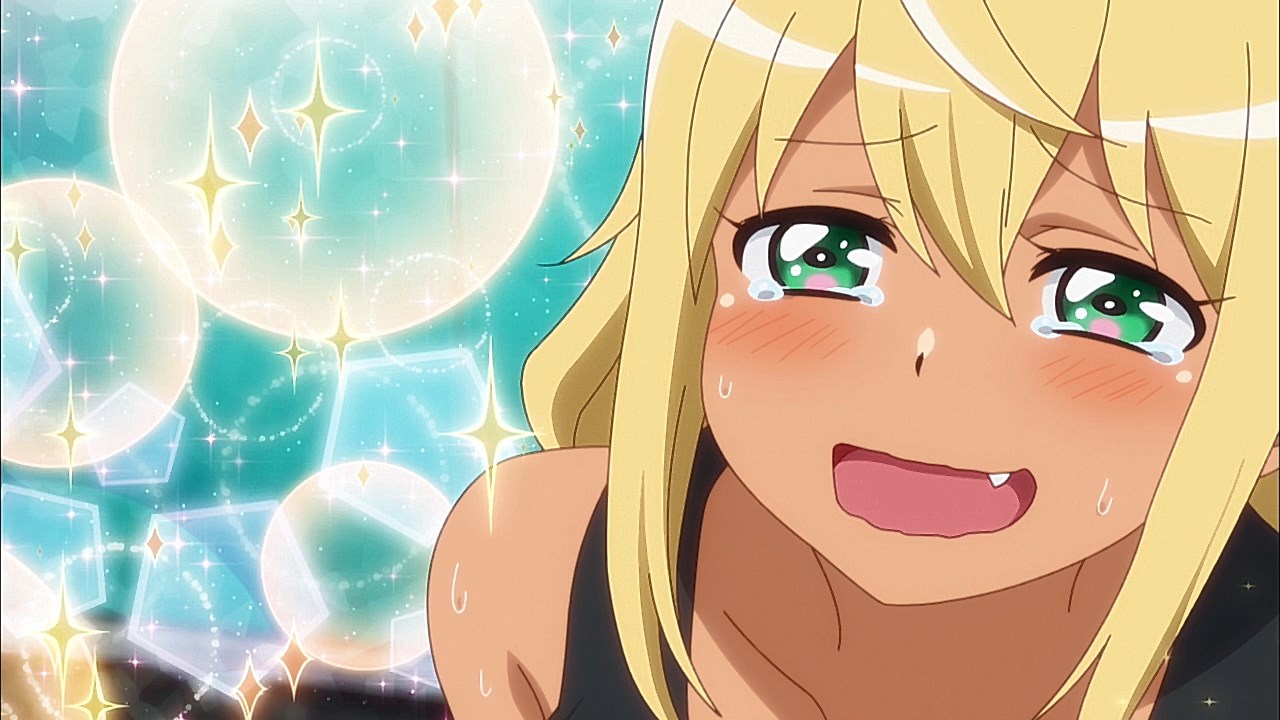
Granbelm (1)
Lots of attention paid towards color, lighting and fluency in this very visually rewarding start to Granbelm. It’s lovely how this show physically presents its exterior – leveraging a vivid aesthetic that’s very kinetic in design when the rubber meets the road. Scenes flow easily here with the mecha action coming across smooth in and out of cuts, carrying a good sense of weight and balance, and ultimately displaying fine eyes for impactful finishes. The show feels easily investable on its frontend, so it’s a shame to see there isn’t much here yet on the backend. Textually, our narrative and cast are very vague with an irregular combination of elements and genre spaces seemingly being dipped into at once. It’s clear that Granbelm needs a firmer grip on those aspects starting week two which hopefully we’ll get. Right now though, the craft spectacle that is episode one is still plenty satisfying on its own.
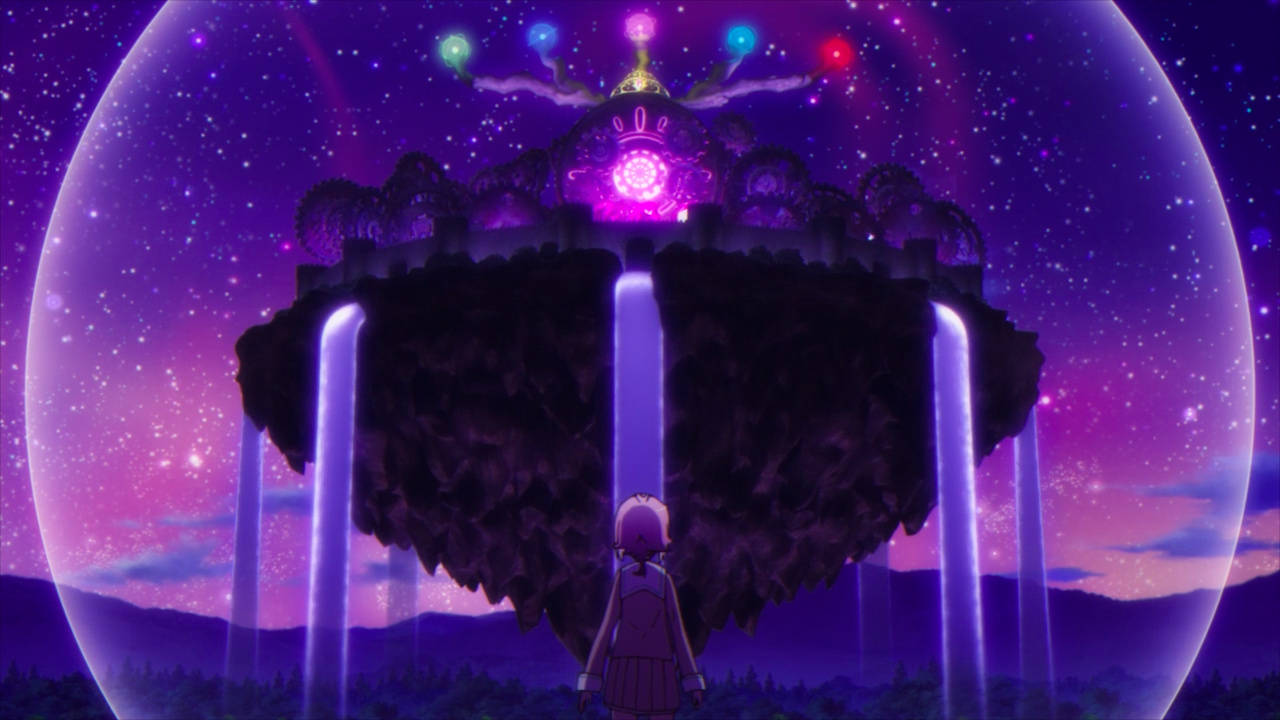
Araburu Kisetsu no Otome-domo yo (1)
Sex is always a fragile topic when tackled in this medium, often with portrayals and writing too overwrought and dramatic to stay stable and effective. Araburu Kisetsu no Otome-domo yo’s start appears to have good intentions on a more level, sex-centered take – bringing a fair amount of honest rifts through episode one that illuminates Kazusa’s headspace and seamlessly integrates into its servings of lighthearted comedy. Unfortunately however, a healthy chunk of its interactions can really come across as over the top and needlessly dramatic. There are particular reactions on Kazusa’s end that are outright red flags for this show’s tonal handling and ability to stay grounded, especially in its closing minutes. With only a single episode sample size, there’s still plenty of hope that isn’t the norm moving forward. Fingers crossed.
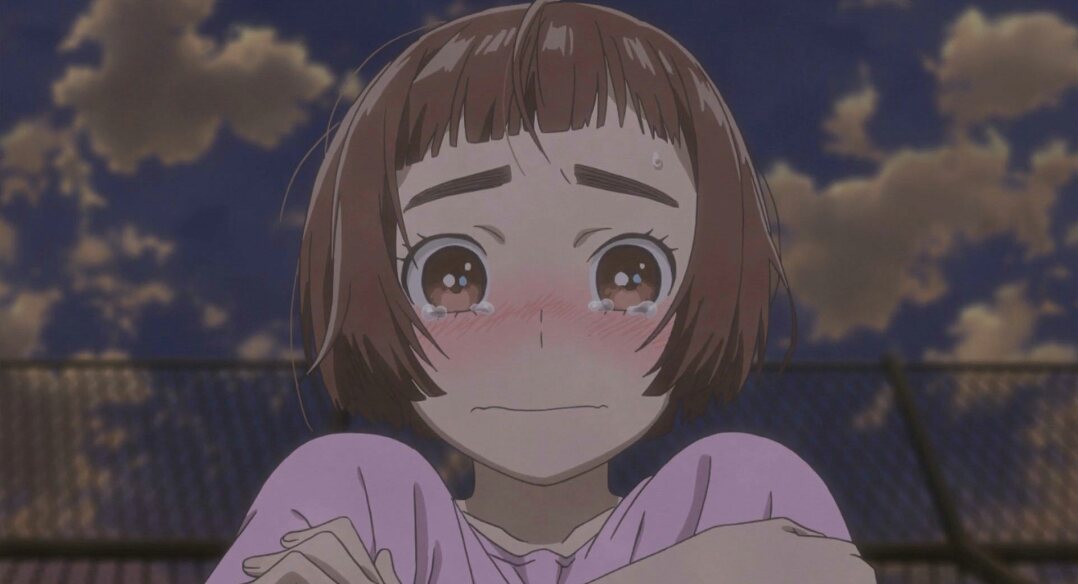
Uchi no Ko no Tame Naraba, Ore wa Moshikashitara Maō mo Taoseru Kamoshirenai (1)
UchiMusume experienced a modest opening, checking enough tonal and structural boxes to make it an acceptable slice of life watch, and even laying down the groundwork for higher dramatic aspirations at times. There’s not much to unpack here as our twenty minutes spent are rather true to its synopsis and PVs – making good on its portrayal of Dale and Latina’s relationship through plenty of adorable scenes from start to finish. The ending lacks real forward momentum, but its particular father-daughter dynamic is a decent enough buy in to garner a second look.
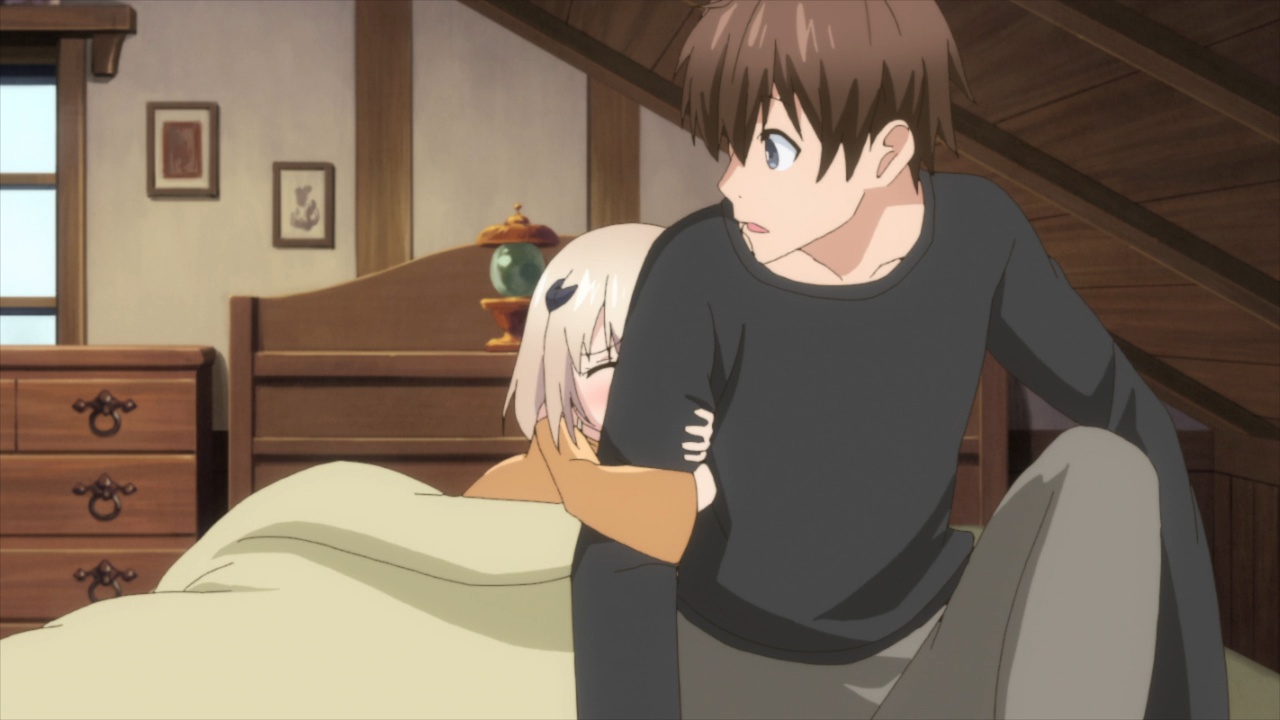
Nakanohito Genome (1)
Nakanohito Genome opened with a much stronger set of tangible assets than its PVs and pre-air discourse suggested. Masanori Tsuchiya’s sound design was actually sneakily good to the point that I rewound some scenes just to hear certain tracks again, and key parts of its presentation conducted a stylistic lift that certainly deserves more attention. Sadly, I can’t say the same thing about the show’s storytelling – as it’s saturated in loose writing and poor fundamentals with a notable degree of intrigue being the only consistently positive aspect. If it can get better footing on that end I can see this turning out to be a low-key solid ride, but for now, its shot-framing and craft touches isn’t a bad consolation prize.
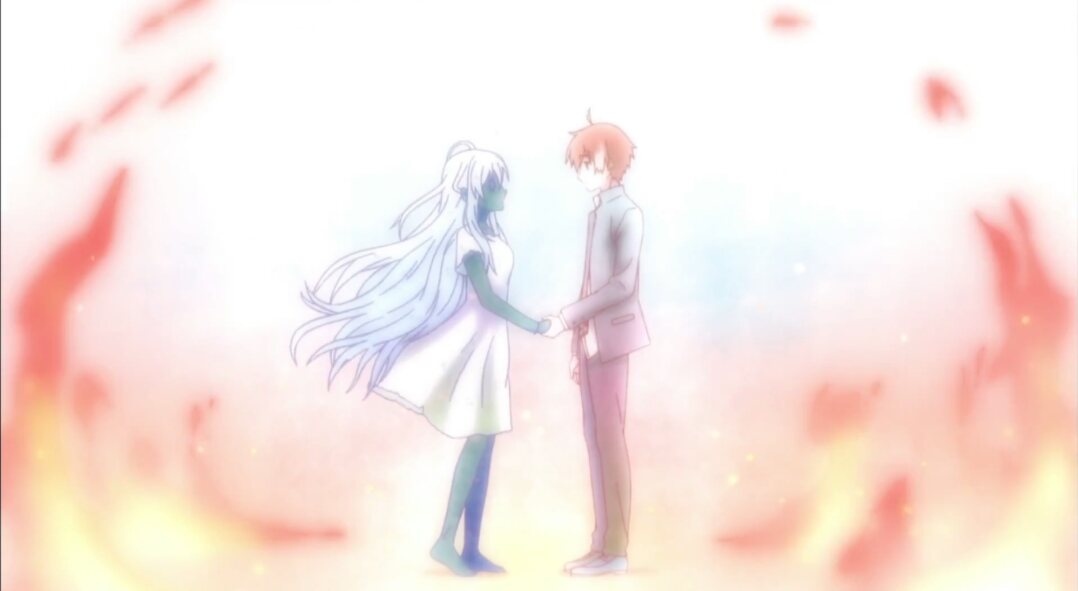
Lord El-Melloi II Sei no Jikenbo: Rail Zeppelin Grace Note (1)
Okay introduction to Grace Note on a whole with some noticeable slumping here and there once the premiere gets boiling. Mechanically, episode one was fine for the most part. It gets its narrative foundation settled without too much hassle but also with little flair – inevitably lowering the bridge for episode two to bring in more engaging material. So in short, this outing essentially acted as a basic stepping stone – particularly differing with a drier delivery and a more verbose approach but still serving the critical function of setting the audience up. Necessary but middling.
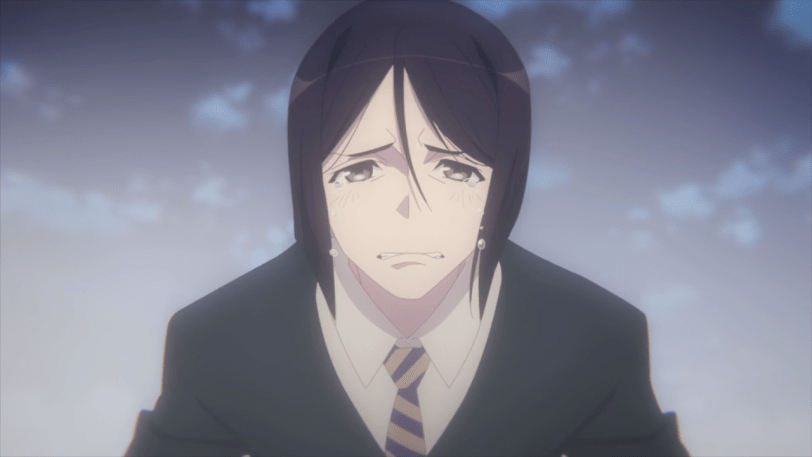
Sounan Desu ka? (1)
Fair entry for Sounan Desu ka? given its short form and the genre spaces it’s banking on reaching. While the style of comedy isn’t anything special, it’s reasonably timed and not sloppy enough in presentation to hamstring its surrounding material. Building on that, our twelve minutes spent have a sturdy enough flow and balance to keep its survival tips from feeling too bloated. You get just enough insight and just enough shenanigans for its story to go down smooth without gagging.
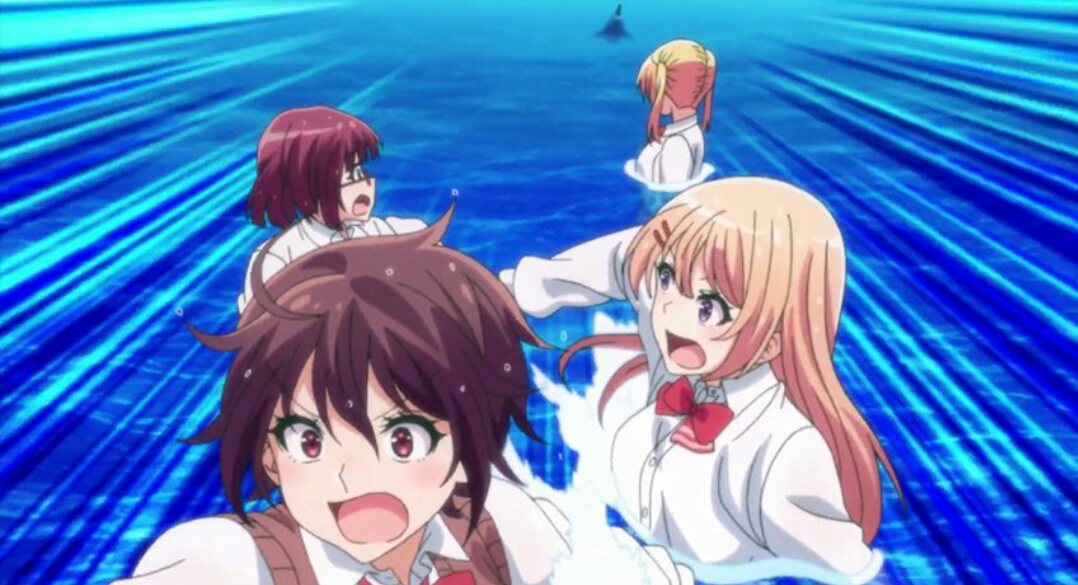
Katsute Kami Datta Kemono-tachi e (1)
Not a bad start, but one that could have been so much more. Katsute Kami Datta Kemono-tachi e’s premiere is rather stagnant in its approach – providing little distinguish between key beats as even the episode’s closing twist receives little spark or embellishment. Scenes that are intended to hold emotional weight do so limply, lacking the build and brand of telling to make the most out of Hank’s dilemma, ultimately coming across as pure staging for the remainder of the story as opposed to the material the audience should resonate with. Interested to see if MAPPA can put a bit more polish on this one moving forward, but for now, it’s a fairly mediocre experience.
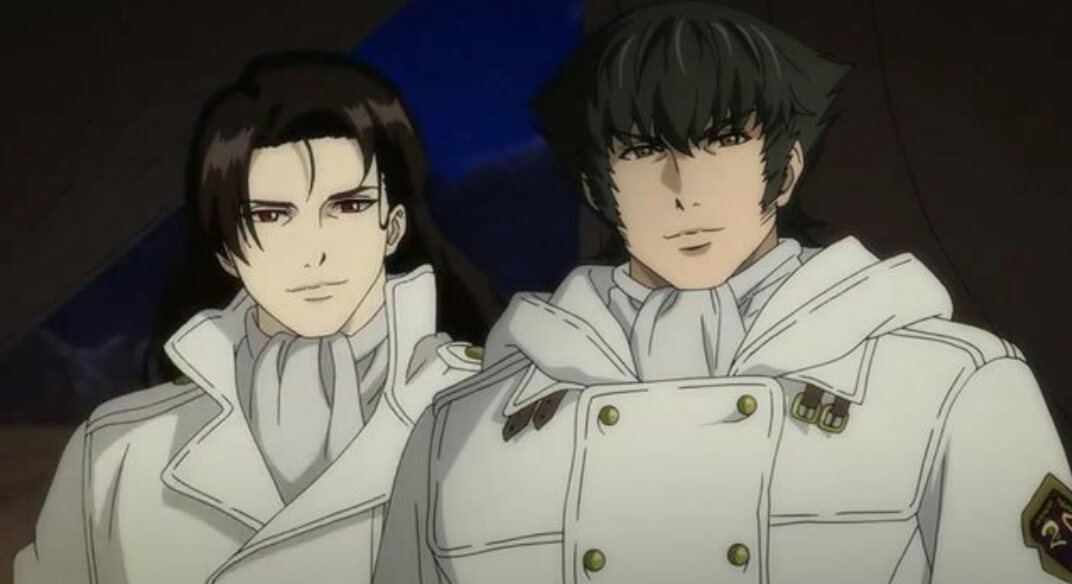
Maou-sama, Retry! (1)
Maou-sama, Retry! rolled out an opening episode that should come as a surprise to anyone who anticipated it being even a little fresh, as lo and behold, it’s not even close for an Isekai. The storytelling is as thoughtful and innovative as Death March to the Parallel World Rhapsody, and the MC is simply a rehash of the same tired character traits that you’ve seen time and time again: A “cool” guy who’s self-aware of the game mechanics and circumstances he finds himself in, and of course, is clearly overpowered. Same song, same dance, just a slightly different venue folks.
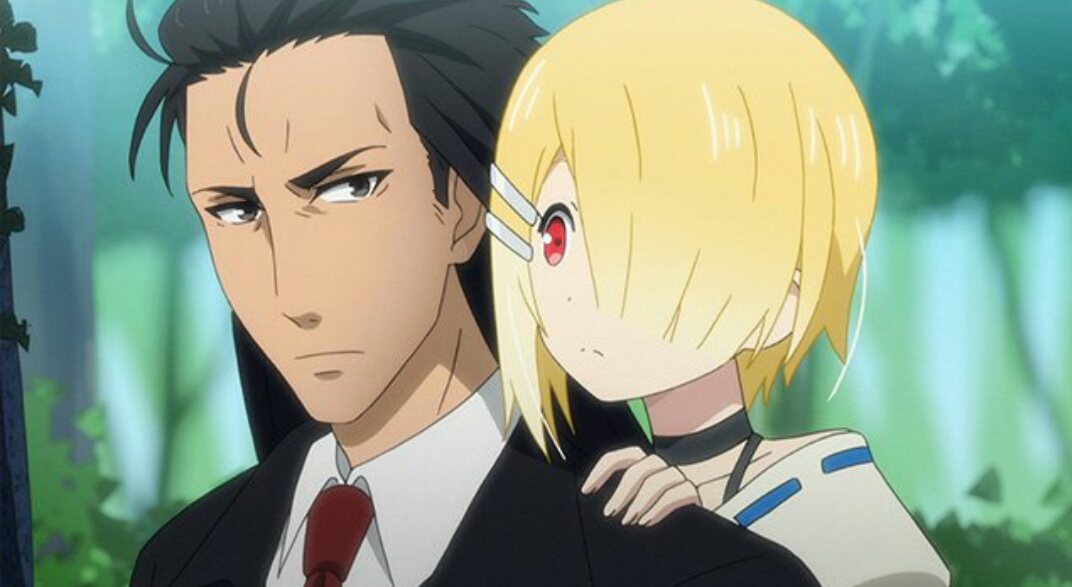
Tejina-senpai (1)
Lastly for this week, in a display of shallow plotting and even thinner delivery, Tejina-senpai debuted with a forgettable twelve-minute cluster that I’ll never get back in life. By credit roll it’s easy to feel that this show is the bargain brand version of the bargain brand version of Dagashi Kashi – sharing a lot of similar base notes to its candy counterpart, but being vastly cheaper in written intangibles and execution. Jokes are fired off rapidly in hopes that one sticks with little build or punch, and the overall narrative is handled with a similar lack of care. At points, Tejina-senpai attempts some splashes of fanservice with totally-not-Hotaru as if to distract viewers from the thick wad of thoroughly subpar construction and telling that makes up the episode. Needless to say, it can’t overshadow it and the total degree that this start underwhelms.
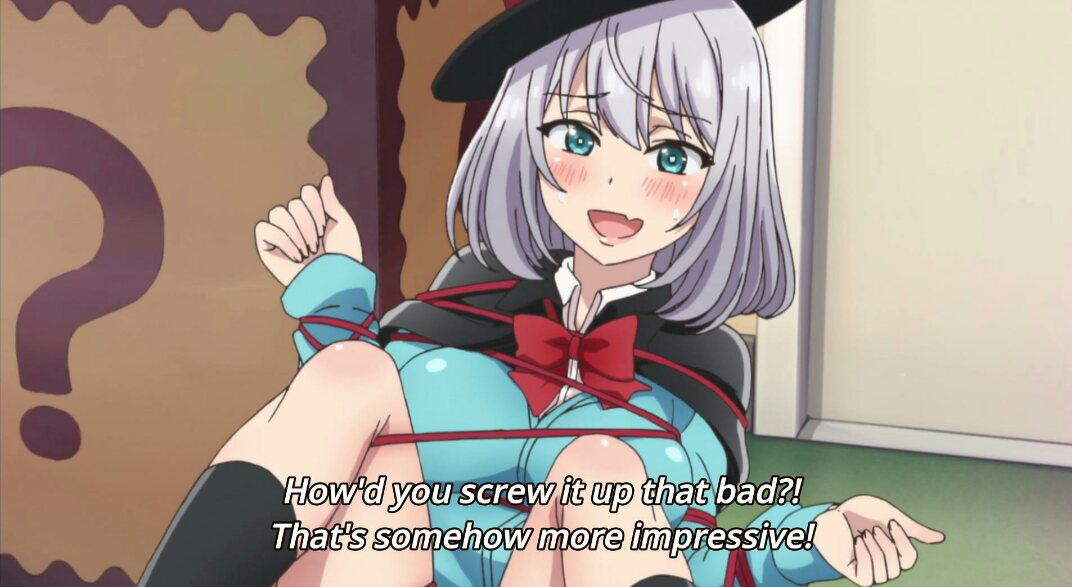
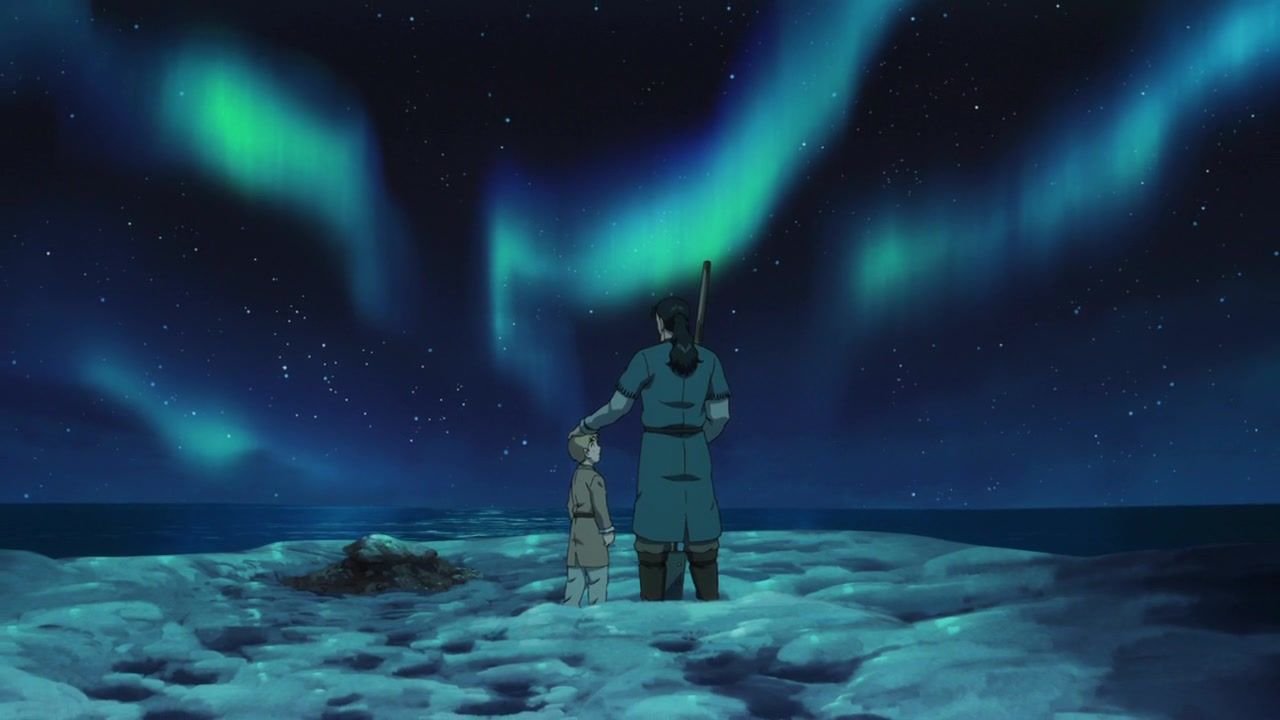
6 thoughts on “Summer 2019 Anime Week 1 [Check-In]”
I don’t think Dr Stone lived up to the hype… I’m not saying it was bad, just that it was kinda thin and the episode was mostly devoted to setup. (More sizzle than steak if you will.) It’s going to take a few episodes to see how much traction it gets.
I would be interested to see where it stands with you around week 4
As far as Araburu Kisetsu no Otome-domo yo goes, I heard some of the issues you describe as a complaint from some people about the episode, but I didn’t feel that way at all. I personally feel that’s just an aspect of Mari Okada’s writing that tends to shine itself in her works; an over-the-top unique brand of humor that just seems bizarre when you think about it. I feel that it works where it was used in this anime, but it’s obviously gone awry in other works of hers (Koufuku Graffiti is a prime example).
I have faith in her ability as a writer to make a show like Araburu Kisetsu no Otome-domo yo work well, but I suppose how you feel about the show depends on how you view her works in general, which I understand isn’t positive by a fair bit of people.
As noted in the check-in, I feel what Mari particularly shows through her character writing here lends itself well to the comedic beats she’s trying to hit. The bolder energy, louder volume, and forthright approach is plenty effective in this regard, so I agree with you there. However, just to be clear, where my complaints come into play is when Mari takes the previously-mentioned approach to more dramatically inherent territory, in which she doesn’t even get remotely close to the same outcome and instead, delivers results as I briefly described in the check-in.
As a writer, my faith in Mari Okada is half full. I noted in my Summer prep blog that Okada’s quality has varied wildly as a talent in general on series for nearly the last half-decade, and that track record over the time (Gourmet Girl Graffiti, Mobile Suit Gundam: Iron-Blooded Orphans, Kiznaiver, The Lost Village, Dragon Pilot: Hisone and Masotan) should give one reasonable caution giving how those works are commonly perceived. If that wasn’t enough, Mari’s infamous for poor tonal touch, often laying out emotional rifts and quips so thick that they become deeply melodramatic.
I think she can pull off this show if she can rein in her style better when switching genre gears – and I ultimately hope that’s the case.
Your response clarified your position well, and based on that, I think I read into your initial write-up on the show a bit too much. Mari is obviously not a perfect writer by any means, especially indicated by certain antics that have been displayed by her in other shows.
In fact, right after I sent the prior comment, I immediately thought of HisoMaso and all of the problems that came with that show. That’s when I better understood what you were specifically talking about, and I think that’s a pretty reasonable way to approach this show based on how the first episode played out.
As long as the show stays grounded and doesn’t go to elaborate emotional stretches to make the plot work, then I think it will be fine. The first episode didn’t really make it clear as to how far it will go into any of the caveats mentioned above, which is I think where the skepticism by many comes in on both the “ridiculous antics” front and the “melodramatic” one, with the episode having examples of both.
They’re qualities that I love about Mari Okada’s writing, but those same things I love can also be the same things that I hate about her works. Having seen almost all of her works at this point, it becomes clearer as to why people find her writing style so polarizing, and the multitude of genres that she has written for just makes the differences even more stand-out.
I want to like this show as much as everyone else, but I think your reasoning and explanation behind it are very grounded as well, taking into consideration all of the above and some of the low points of episode 1. I hope episode 2 clarifies the tone of this work and what we should expect from the show in future episodes.
Thank you, I’m happy my stance is much more clearer.
Here’s to hoping that Araburu turns out well moving forward!
Comments are closed.